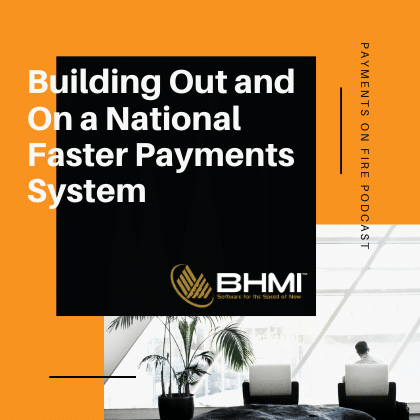Electronics Mart IPO Share Allotment: Status, date, and more, check it all online How-to
Contents
When a private company issues shares for the first time it is known as an initial public offering. The process is known as a follow-on public offering if a public company issues additional shares after an initial public offering. The fresh equity issued by a company during an IPO is bought by investors, which makes them partial owners of the company. The funds raised through an IPO can either be used for expansion or by existing owners and shareholders to book partial profit on their investment.
- In the case of retail investors, SEBI has increased the threshold to Rs 15,000 for the minimum application amount used to define the minimum bid lot size.
- Typically, most investors who apply for the IPO through brokers believe the task is complete upon applying.
- Based on their study, SEBI decided to cap the investment amount at Rs.2 lakh for an investor to qualify as a retail investor.
- For example, a fixed number of shares offered in an IPO is, say, 10,000 shares.
- In addition, since the majority of banks do not accept applications after 4 p.m., it may be too late to file the IPO application.
IPO investors can check the IPO allotment status on the website of the IPO registrar. The allotment status is available online on the registrar’s website. An investor can check allotment status by entering the PAN number or the IPO allocation number. Purchasing at least one share of the parent or holding company in your demat account is a smart approach to increase the chances of getting the IPO allocation. This can ensure that you qualify for the shareholder category.
Remember, only those bids that were received at or above the offer price — called the upper end of price band or cut-off price — are valid. The „proportionate basis“ plays a vital role in the number of shares that are allotted. You can apply various ways to increase your chances of IPO allotment. You can invest through your broker directly and block your money using UPI .
All you need to know about IPO allotment process
An amount to the extent of shares allotted is debited from the bank account after the allotment of shares. However, there is always a chance that the number of retail investors surpass the maximum number of shares issued. In that case, the eligibility for the minimum bid lot is determined by the draw of lots. This is an automated and a computerized process, leaving no room for any errors. So, when it comes to allocation in case of oversubscription, the total number of shares available for retail investors is divided by the minimum lot size.

The process for applying an IPO process has been explained in detail above. Here are few other answers to important queries that you may want to learn. Having said that, it is important to remember that the decision to go public is a massive one. Any company arrives at this decision after a lot of consideration and many months of consultation with experts. In this scenario, underwriters can exercise the greenshoe option. The greenshoe option allows underwriters to issue 15% more shares than officially planned.
This case is more likely to happen and requires a bit of planning from the registrar to decide how the allotment actually takes place. Thankfully, there is a mandate issued by India’s market regulator, SEBI which stipulates that at least one lot must be given to every applicant. Keeping this in mind, let’s work with an example to understand the allotment process in greater detail. IPOs tend to be done at a huge scale and bring about a few changes in the ownership structure of a company. With fresh infusion of money, companies can now expand operations, invest in product development, hire better talent and so much more.
Open Demat Account at lowest Brokerage
Kotak securities Ltd. having composite licence no.CA0268 is a Corporate Agent of Kotak Mahindra Life Insurance Company Limited and Kotak Mahindra General Insurance Company Limited. We have taken reasonable measures to protect security and confidentiality of the Customer information. Please contact your Demat Account broker to find out you got the IPO Allotment or not. Just log on to BSE Website or IPO Registrar Website and Enter your PAN or Application Number or Demat Account Numbers to Check the IPO Allotment Status. You will be able to see your IPO Allotment on the screen (mobile/desktop).
You can do this via the IPO registrar, i.e, Link Intime or KFintech. The details required are the same as the information you furnish at the bidding time. Before an IPO, a company is a private entity supported by a small number of private investors such as angel investors or venture capitalists.
IPO Allotment Status || IPO Allotment Status 2022 || Check IPO Status Online
Several investors rely on the subscription levels of High-Net-Worth Individuals and Qualified Institutional Buyers before placing their orders. Some investors take interest in observing how the HNI and QIB categories purchase IPOs. If you apply on the last day, there may be a few complications, such as the bank account not responding owing to strong demand from HNI and QIB investors or other technical issues. In addition, since the majority of banks do not accept applications after 4 p.m., it may be too late to file the IPO application. When a company decides to go public, underwriters assess the market to gauge the potential interest of the investors. During this process, there is always a chance of underwriters underestimating the interest in the IPO and price it lower than the market would actually pay for.

Depositories like NSDL and CSDL, stock exchanges and even brokers inform the investor through email or SMS about the allotment status. You will require the PAN and DPID/ client ID number or the bid application number to check the allotment status. Companies announce their decision to go public when they need to raise capital for operations or expansion and are confident about their future performance.
For such companies, the initial public offering process attracts a lot of coverage and fanfare as there are many potential investors who will be seeking to get in on the bandwagon. The process of allotting shares in an IPO is fairly simplified. Investors who are interested in investing in any IPO are free to place bids for a particular lot of shares.
Case I: Total Cumulative no. of bid lots is less than the Total No. of Lots offered
Receive OTP directly from depository on your e-mail and/or mobile number to create pledge. The allotment is based on rules set by the Securities and Exchange Board of India , the capital market regulator. IPO allotment time is the date on which the allotment is declared. Stock Brokers can accept securities as margin from clients only by way of pledge in the depository system w.e.f. September 1, 2020. If you have recently applied for an IPO via Angel One, here’s how you can check your Allotment Status from our Mobile App.
Hence, investors are unaware of the exact price at which the said shares will be allotted to them. They are expected to bid on the shares and the final price is determined only after the bidding is closed. A bid means the investor needs to specify the number of shares he wants to apply for and the rate he is willing to pay per share . As the bids are registered, the company builds its book and determines the final of the share.
In India, this process takes a week after the closing of the IPO. Once this is over, you can access the information with the same IPO name that you applied with. Moreover, ipo allotment process you will also receive updates via email and SMS from the authorities. You can check the status of your IPO allotment in a few simple steps, online or offline.
No, IPO doesn’t get allocated based on a first-come, first-serve basis. The allotment of shares in case of an IPO depends on the interest of the potential investors. If a lot of investors show interest in any particular IPO, then the allocation of shares to the retail investors is done through a lottery. It is very important for investors to know the basics of the market before investing in shares.
Investment in securities market are subject to market risks, read all the related documents carefully before investing. Please read the Risk Disclosure documents carefully before investing in Equity Shares, Derivatives, Mutual fund, and/or other instruments traded on the Stock Exchanges. As investments are subject to market risks and price fluctuation risk, there is no assurance or guarantee that the investment objectives shall be achieved. NBT do not guarantee any assured returns on any investments. Past performance of securities/instruments is not indicative of their future performance.
Verify your name, demat account number, category, bid amount, DP account number, etc. IPO applications have been denied because of mistakes and incorrect information. The IPO allotment information becomes available after the register finalises the allotments across all the investors.
This period is open from the time of the announcement to the closing of the IPO. In 2021, one of the most popular online payments platforms – Paytm – announced its IPO. Not only did this become the biggest announcement of the year, but the IPO also ended up as the largest in India.
The company appoints a registrar to preside over the https://1investing.in/. The registrar is a registered company that works independently. On the IPO allotment date, the registrar publishes a list of investors and the number of lots issued to each of them. In the case of large-cap IPOs, completing the IPO allotment process takes about a week’s time. The registrar updates the allotment status on its website, where investors can check the application status.



